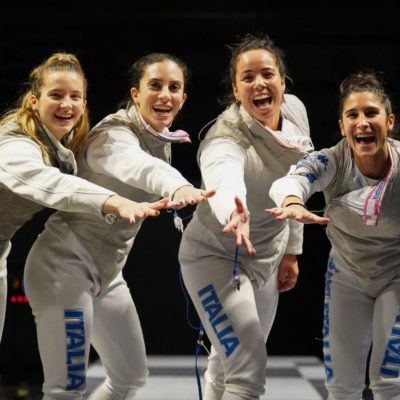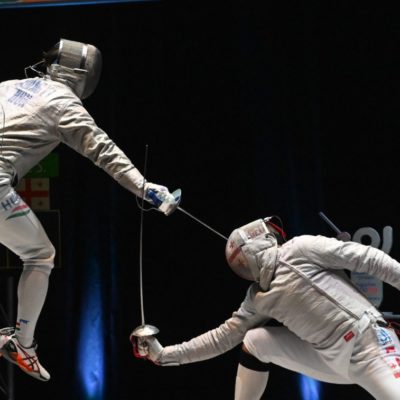PARIS – Pierre Abric, at the head of the French Federation of fencing (FFE) since 1984, laid down an objective record for the last year of his presidency: “to pass the bar of the 110 Olympic medals” at the time of the OJ of Athens which begin on August 13.
Fencing has brought the greatest number of Olympic medals for France – 105 total as of the 2000 Olympic Games. “I would be disappointed if one did not make at least three medals out of four team events. It is necessary to transform the qualifications, which started two years ago, into medals”, explained the federal president.
Like Russia and China, France will be present in the four team events (women’s epee, Men’s epee, sabre, and foil), so they have enough chances at team medals. Indeed, with eight nations qualified by weapon, two victories (in quarters and semi-final) open the doors to a gold medal. The reduction of the Olympic quotas has a perverse consequence. From now on, in fencing, it is easier to win an Olympic medal than a World Championship.
“We have also chances in each individual competition, even with the women’s foil with Adeline Wuillème”, Pierre Abric stated. At the 2003 World Championships in Havana, France won only four individual medals, including a gold medal by epeeist Fabrice Jeannet.
The FFE president likes France’s chance at gold in men’s epee – “..the Russians never perform well at the Olympics, contrary to us. And the Italians did not qualify their two teams with the epee.”
The Russians dominated (14 medals) the last Championships from Europe in Copenhagen, where France, Italy and Germany had not sent their best fencers.
The sabreur Stanislaw Pozdniakov, who has ten Olympic and world gold medals, and the Italian foilist Valentina Vezzali, dominant in her weapon with the 51 World Cup victories, will represent the top fencers in Athens.
China, on par wioth the world in all the weapons, and the Americans, primarily with the sabre, will try in the Greek capital to break into the medal table.





